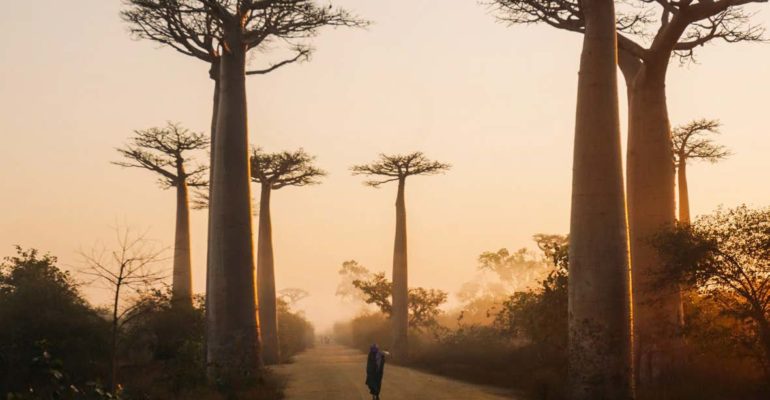
Towards new narratives of hope for fostering transformative African futures
Click Here for the Full Document
In a recent Open letter to Global Leaders, the Club of Rome with 250 partners and other
global institutions launched the Planetary Emergency Partnership. This document re-affirmed
the reality that the world is facing a Planetary Emergency and that now more than ever, new
ways of thinking, governing and acting are called for to respond to the devastating effects that
the COVID-19 global pandemic are unleashing on the global economy, financial markets and
the everyday realities of people’s ability to create livelihoods and hopeful futures. As argued
by many analysts, this pandemic has exposed our vulnerabilities. In particular the social,
environmental and economic injustices that plague our societies have been revealed.
We now recognise the inherent fragility of our highly technological and globalized societies in ways
that would have been unthinkable in a pre-Covid-19 world. And yet in the midst of these challenges,
new positive ways of working and thinking have emerged which could help define a new future and
contribute towards new narratives of hope. This is where we would like to weigh in, with cumulative
and new African voices—old and young—to consciously co-create an emerging present that places
values such as entrepreneurship, sustainability, community, empathy, compassion, circularity and
resilience, inter alia, at the centre of our focus.
Gripped by the magnitude of the global state of emergency, the African Chapter of the Club of
Rome convened regularly in 2020 to document insights from African philosophy and cosmology
in this time of radical uncertainty and transition. In our reflections we tried to bring into focus
the unique contributions Africa and Africans bring to the Planetary Emergency Partnership is
offering for the complex, interconnected challenges of our world. Seen through the epistemic
lens of ‘Western culture’, the challenges facing post-colonial Africa have always seemed
insurmountable – even to those charged with governing the post-colonial African nations. These
challenges are not our focus here, especially as they are well documented and studied and
seem more complex and interlinked now than ever before. Rather, our point of departure, is
to take an Africa-centric world view, seeing these challenges through ‘decolonial’ lenses and
striving, alongside other global communities, to make sense of this rapidly changing world.
During the online interactions with colleagues, we realised that in this time of uncertainty, we could offer to
curate a new narrative for framing what it means to be African at this historic moment, and how this may
be relevant to others around the world. The demonstration of solidarity by people moved to participate in
mass protests in support of the Black Lives Matter movement across the world reflected a much deeper
search for a new humanism. From an African perspective, where being black is mostly sine qua non,
we were obliged to reflect on why it is that this movement at this very time, could make a difference.
Consequently, what is our own collective responsibility to contribute to this question of building a more just
and equitable world? More specifically, what would our experience of being African bring to the discussion
about transcending the collective global state of fear, anxiety, discrimination and disorientation as humans
face the breakdown of economic and social institutions alongside the already rupturing ecological web of
life? Faced with the cracks that have been exposed in the social, economic, ecological and political fibre of
nations, are we not all obliged to re-examine our world and re-imagine a more just and inclusive future for
peoples of all colour, culture, religion, gender, class and nationality?
GOALS FOR AFRICA
For us Africans, using our ‘decolonial’ lens, re-imagining new narratives to inform alternative futures,
invariably leads us to Agenda 2063 of the African Union, tagged ‘the Africa we want’, with the following
well-articulated goals:
• A prosperous Africa based on inclusive growth and sustainable development
• An Africa of good governance, democracy, respect for human rights, justice and the rule of law
• An Africa with a strong cultural identity, common heritage, shared values and ethics
• An Africa whose development is people-driven, relying on the potential of African people,
especially its women and youth, and caring for children.
Similarly, the AUD-NEPAD agenda focuses on pragmatic action points such as:
• Collaboration and intra-Africa trade and exchange of goods and services
• Strengthening of health systems to provide universal access to quality care;
• Production of goods and services to meet urgent needs for equipment and personnel for health
and other systems within our countries;
• Shifts to technology based online teaching, learning and virtual engagements are an opportunity
to leverage our 1,3bn market in framing our economic negotiations;
• Young people’s employment and livelihoods are an opportunity to tap into their creativity and
energy as the most important asset on our continent to effect the transformation of our economic
systems into bottom up SMEs driven approaches.

 Afrikairos GmbH
Afrikairos GmbH